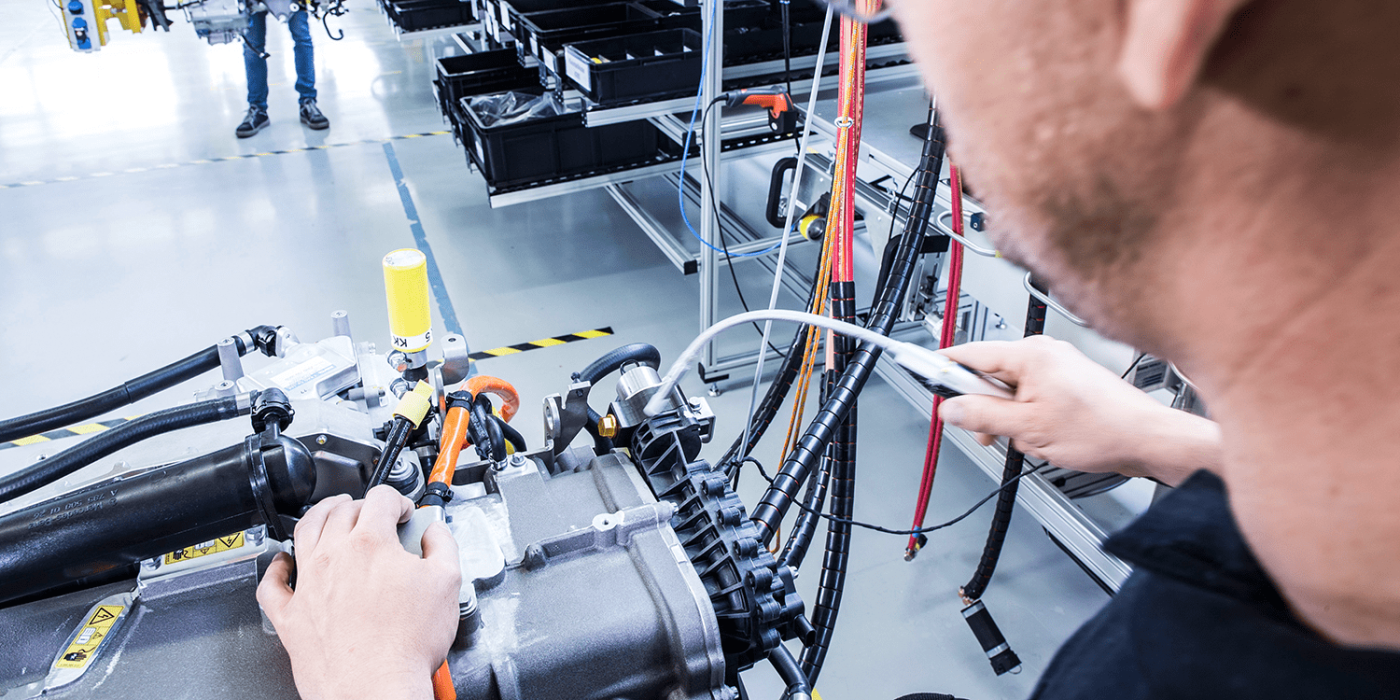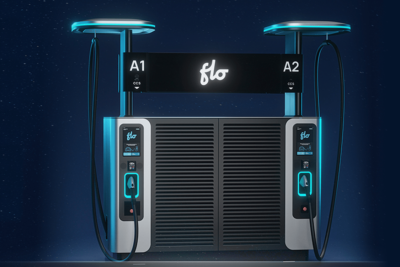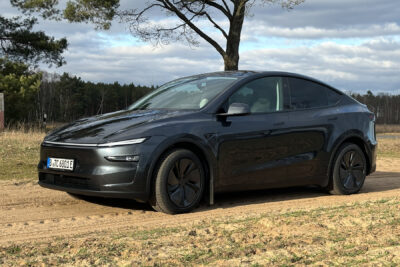Daimler & Volvo join on truck and bus fuel cells
Daimler Truck and the Volvo Group intend to establish a joint venture to develop and build fuel cells for heavy-duty commercial vehicles. Although the letter of intent just signed is non-binding, a final agreement is expected to be concluded by the end of the year.
++ Kindly find all updates to this article below. ++
The preliminary agreement between the two commercial vehicle manufacturers provides for the establishment of a new joint venture whose goal is the “develop, produce and commercialise fuel cell systems for heavy-duty vehicle applications and other use cases”. According to the announcement, Daimler intends to bundle all of their current fuel cell activities in the joint venture. According to the two partners, the aim is to achieve series production “in the second half of the decade”.
The preliminary agreement now concluded is non-binding. A final agreement is expected by the third quarter and is to be concluded before the end of 2020. The planned joint venture includes locations in Nabern, Germany (currently the headquarters of Mercedes-Benz Fuel Cell GmbH) as well as additional production facilities in Germany and Canada.
Both partners will hold half of the shares in the joint venture. In order to make the joint venture possible, Daimler Trucks has announced that it will combine all Group-wide fuel-cell activities in a new fuel-cell unit. This includes the allocation of the activities of Mercedes-Benz Fuel Cell GmbH to Daimler Truck AG. According to Daimler’s announcement, Volvo will then “acquire 50% in the joint venture for the sum of approximately 0.6 billion euros on a cash and debt-free basis.”
Martin Daum, a member of the Daimler Group Board of Management and CEO of Daimler Truck AG, sees the partnership as a “milestone in bringing fuel-cell-powered trucks and buses onto our roads now. This “now” has been a long time in coming, since Daimler has been sitting on fuel cell bus and van prototypes since 2009 or earlier.
Just late last year Daimler Trucks said that they would not be able to transition their vehicles off combustion engines until 2039. The current announcement implies hope that this plan may get a little emission-free propulsion. At the same time, however, it seems that the CEO is convinced the currently convulsing oil market and lurching shale industry will manage to keep prices where they are for another 10 to 15 years.
“We see at the moment, a historic day when oil is basically free, because you have so much more production than demand, and that can easily happen in the future,” Mr Daum told the Financial Times with regard to the demand for emission-free heavy-duty vehicles.
Meanwhile, even in Europe, North American fuel cell truck companies like Nikola and the newly formed Hyzon make big steps in heavy-duty fuel cell transport. Hyzon also recently announced they had an order for 1000 fuel cell buses from an unnamed client. In Daimler’s home country, Wuppertal recently increased its already-significant fuel cell bus fleet, relying on fuel cell buses from Solaris in Poland or Van Hool in the Netherlands, while no fuel cell buses are currently Made in Germany. Not completely inactive, though still more than a little behind, in Japan, Daimler-owned Mitsubishi Fuso Truck & Bus Corporation (MFTBC) announced the intention to start series production of fuel cell trucks “by the end of the 2020s”.
Regarding the planned joint venture between Daimler Truck and the Volvo Group, Martin Lundstedt, President and CEO of Volvo Group says, “Using hydrogen as a carrier of green electricity to power electric trucks in long-haul operations is one important part of the puzzle and a complement to battery electric vehicles and renewable fuels.” He sees that, “Combining the Volvo Group and Daimler’s experience in this area to accelerate the rate of development.”
Both men underlined the need for external support for the commercialisation of fuel cell vehicles. Mr Lundstedt warned that “for this vision to become reality, other companies and institutions also need to support and contribute to this development, not least in order to establish the fuel infrastructure needed”.
Other companies, such as Hyundai have long since forged cooperations along the energy and infrastructure supply lines such as the Hydrospider initiative in Switzerland, among others. While insisting on support, it seems Daum is also confident that hydrogen supply networks will be ramped up further on their own. “I believe in free markets, and where there is demand, there will be supply, and what we did today is create tremendous demand.”
Specific projects have not yet been mentioned in the companies’ announcements, given the timing and the fact that the agreement has not yet been signed with binding effect. Both manufacturers are working on electric trucks and electric buses. In the case of Daimler, for example, a version with fuel cell range extender of the electric bus model eCitaro is also planned. The Volvo subsidiary Volvo Construction Equipment is also working on electric construction equipment.
Update 22 April 2020: As indicated above, there are concrete consequences for the passenger car projects at Daimler: Mercedes will soon stop production of the fuel cell SUV GLC F-Cell, according to Daimler truck CEO Martin Daum. For the time being, no further car with this drive is planned, according to Daum.
Earlier, Daimler CEO Ola Källenius had already hinted several times that the fuel cell would only play a minor role in the electrification of the passenger car range. In the short term, Daimler is, therefore, counting on battery electric energy, and is making this more than clear with this step. Even as a small series – as BMW intends to do in the coming years – there will be no FCEV with the star in the foreseeable future.
The GLC F-Cell was only ever limited to small series that was not sold at all. Which did not stop them touting the car to exemplify their progress in fuel cell technology while keeping their fuel cell logistics and public transport vehicles quiet. The fuel cell cars will remain the property of the Group and are rented to selected customers for 800 euros per month.
Daimler and Volvo are a little late working out that fuel cell makes most sense when it comes to large and long-haul heavy-duty vehicles. But better late than never.
With additional reporting from Carrie Hampel
daimler.com, volvogroup.com, ft.com, insideevs.com (update), autonews.com (update)





0 Comments